Note: That Mutt and 1-800-PetMeds® have partnered to bring you this post.
Is it safe to put flea prevention on a puppy?
The short answer is, yes, there are several options of flea prevention products you can choose from for puppies as young as 4 weeks old.
Longer answer … it all depends on your unique situation, the age of your puppy and comfort level.
I use a topical flea prevention on my weimaraner puppy, although I wish he didn’t need any flea prevention.
I brought Remy home when he was 8 weeks old, and I gave him a dose of topical flea prevention when he was 10 weeks. We chose a product our vet decided was OK for a puppy of Remy’s age.
Flea prevention is one of those topics where every dog owner has to make up her own mind about what is best for her own puppy. What is best for MY puppy is not necessarily best for someone else’s puppy.
Which types of flea prevention products are safe for puppies?
Obviously we all want to limit the amount of chemicals we put on our own bodies and on our pets, but puppies are especially tricky because they are smaller, more sensitive and still developing.
Most flea prevention products do not require a prescription, but I recommend you discuss with your puppy’s vet what is the most appropriate and safe flea prevention option based on your puppy’s age, the time of year and the risk of fleas in your area.
Ideally your puppy won’t need any flea & tick prevention! But unfortunately, that’s not always the case.
Natural options for flea prevention on puppies
Before you put any potentially toxic chemicals on your puppy, I recommend you look into some natural options. They might be all you need.
Not only are these generally safer for your puppy but they’re usually less expensive too.
Natural anti-flea sprays & shampoos for puppies and dogs
Natural anti-flea sprays and shampoos can be used for preventing fleas in the first place, but you could also use them if your puppy already has fleas.
Some anti-flea sprays and shampoos are safe for puppies, but you’ll want to check the minimum age and weight recommendation on the specific product you choose. (Each product is different.)
1-800-PetMeds® carries the Natural Chemistry Natural Flea & Tick Spray, which can be used on puppies. According to PetMeds, the product kills fleas and ticks on contact for up to seven days. Just ask your vet before using it on puppies under 4 weeks old.
Another option is Natural Chemistry’s natural flea & tick shampoo. This product also kills fleas on contact. Plus, giving your puppy a gentle bath helps with flea control in general because (ideally anyway) most of the fleas will drown in the bath water.
A flea comb
A flea comb is the best option for getting rid of fleas on newborn pups under 4 weeks of age, according to PetMeds.
There are no risks or potential side effects with using a flea comb as you are simply using it to gently comb the fleas off of your puppy’s coat. See: How to use a flea comb.
It’s unlikely puppies this young will have fleas unless you foster a litter from a shelter or take in a stray mother dog who transfers fleas to her pups. If that’s the case, ask your vet about the best way to treat the mother dog for fleas if she is also in your care. Do any of you have any experience with this? I’d like to hear about what you did to manage the fleas.
You can also try using a flea comb on older puppies or adult dogs, especially if you already see fleas (or “signs” of them) on your pet. A flea comb can be used with other flea prevention products and you could use the comb every day.
Food grade diatomaceous earth
Diatomaceous earth is a substance made from crushed fossils of freshwater organisms and marine life, according to Dogs Naturally Magazine. It is deadly to insects yet harmless to animals. It apparently works by dehydrating the insect or parasite.
I bought some DE for my puppy to put on his bedding and in his food in the hope that it would work as a natural de-wormer and flea prevention.
I didn’t use it consistently enough to say whether it made a difference. After I saw one flea on my puppy, I panicked and bought a chemical, topical flea prevention product.
“Spot on” topical flea prevention products
There are some natural “spot on” flea prevention products you can look into in addition to the natural options I mentioned above.
Unfortunately, sometimes natural products don’t work, and to control fleas in your home you may need to consider using some spot-on products that do contain chemicals.
Here are some examples of topical flea-prevention products considered safe for puppies, according to 1-800-PetMeds®. You would want to check with your puppy’s vet to be sure because each product has its own minimum age + weight recommendation. All of these products are available through 1-800-PetMeds®.
Spot on topical flea-prevention products for puppies:
- K9 Advantix II: For pups 7 weeks+
- Frontline Plus: For pups 8 weeks+
Chewable flea-prevention tablets for puppies:
- Trifexis: For pups 8 weeks+ (Prescription required)
- NexGard: For pups 8 weeks+ (Prescription required)
There are other examples. These are just a few!
I use chemical flea prevention products on my animals, including my puppy, because:
1. We can’t use natural topical flea prevention products at our house due to allergies.
2. We kept having flea infestations until I put ALL my pets on topical flea-prevention products.
3. My senior dog has a serious skin condition and I can’t risk him getting flea bites on top of that.

While it’s general “safe” to use spot-on flea prevention with puppies of the appropriate age, I believe there are potential long-term risks of putting chemicals on a dog’s body.
As with anything else, it’s all about weighing the pros and cons and making the best choices for your own family. Also keep in mind that just because a product is “natural” does not mean it won’t cause an allergic reaction or other health issues.
When chemical “spot on” treatments are your only option
Since I use flea prevention products that contain chemicals, I do what I can to try to keep the amount of chemicals to a minimum. Here are a couple of tricks that work for me personally, but keep in mind this is going against the product’s label for maximum effectiveness.
1. I treat them every 5 to 7 weeks instead of every 4. Especially in the winter. You may be able to skip flea prevention entirely in the winter, depending on where you live.
2. I order the dose below my pet’s weight. I don’t do this for my dog Ace, but I do this with my cats. They are both at least 9 pounds but I order the “small cat” dose of flea prevention for cats 6 to 9 pounds. It still works.
(The above is what I do personally, and not a recommendation from 1-800-PetMeds or veterinarians.)
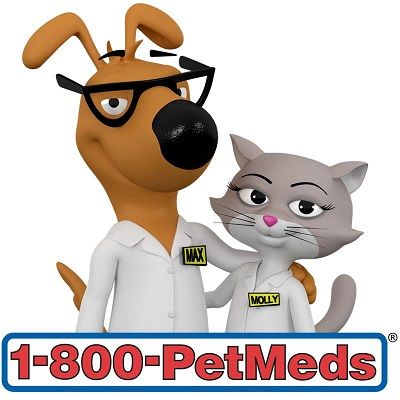 Note: Flea prevention should be discussed with your pet’s veterinarian. This post is intended for informational or educational purposes only, and is intended to be a supplement to, and not a substitute for, the expertise and professional judgment of your pet’s vet. If your pet is in need of urgent or emergency care, contact your pet’s vet immediately.
Note: Flea prevention should be discussed with your pet’s veterinarian. This post is intended for informational or educational purposes only, and is intended to be a supplement to, and not a substitute for, the expertise and professional judgment of your pet’s vet. If your pet is in need of urgent or emergency care, contact your pet’s vet immediately.
What do you do for flea prevention at your house? Do you have a puppy or kitten?
In the comments, let me know what works for you and what doesn’t!
1-800-PetMeds® provides resources on a wide variety of pet health topics. I often consult the site for information on medications and supplements for my pets.

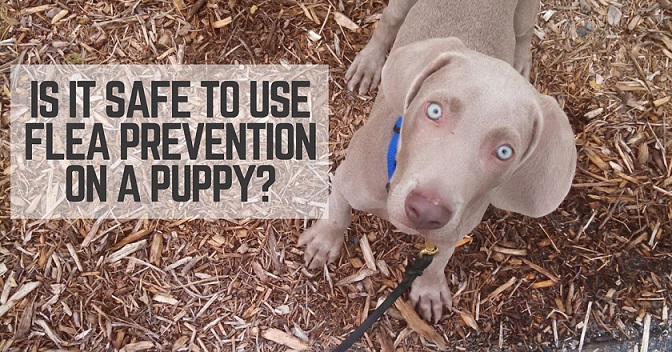
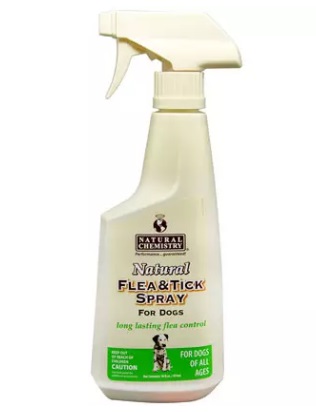
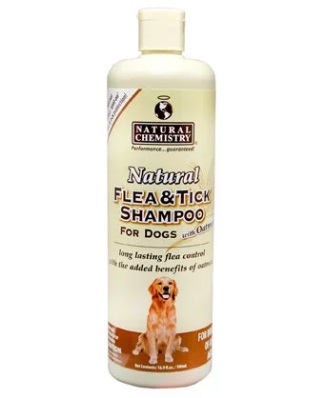
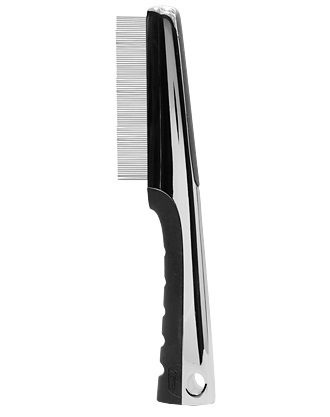

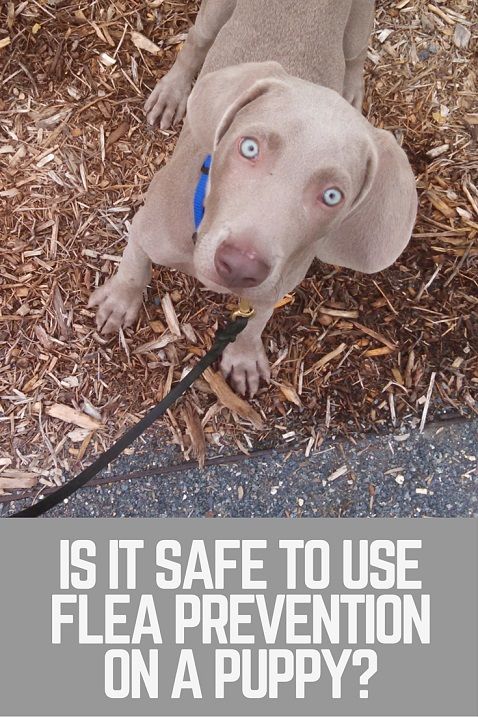
Rodney
Saturday 4th of June 2016
Great post, Lindsay! I also believe that you should give some of the natural remedies a chance before resorting to the "spot-on" treatments. Matter of fact I wrote an article on the potential harm caused by the spot-ons and wrote 3 articles on various natural treatment.
As Christina stated, there are some treatments out there that are indeed neurotoxic. Look at the ingredients before you buy. If you see Imidacloprid or Fipronil, I would recommend you steer clear. Some of the other ingredients, such as Permethrin, are carcinogenic.
What is really scary, though is those "Other Ingredients". Since they are not required to be tested or listed (they are considered to be non-active) like the named ingredients, we have no idea what they might be unless you can find the MSDS for that treatment. I encourage you to read the MSDS carefully. Be prepared to have to search for what those ingredients are though.
Lindsay Stordahl
Saturday 4th of June 2016
Thank you for the info.
Colby
Thursday 2nd of June 2016
When Linus was a puppy he was anemic from all of the fleas. I used the flea comb to remove literally hundreds of fleas. We've used topical and chewable flea prevention, but lucky for us at the moment no fleas and no one is on flea meds (knock on wood). By the way, where we live Frontline no longer works. The fleas have built up an immunity.
Lindsay Stordahl
Thursday 2nd of June 2016
I didn't know that about Frontline in certain areas.
Sandy Weinstein
Wednesday 1st of June 2016
i try to stay as all natural as possible for flea and tick. i had major problems with the Seresto collar, it made my older dog very sick, very, very sick and she is still have residuals from it after 2 yrs. i have tried many of the all natural solutions, the one that i really like the best is by Nature's Farmcy called flea flee. it is concentrated so you have to mix it with water, i use spring water and a little dish washing liquid, i use dawn, the blue. you can make it as strong as you like. however, it works the best of all the ones that i have tried and i have tried over 15. i also use Spirit Essence essential oils called, Para outta sight, put on their food several times a day to build up their resistance. i also love the vaccine detox. i have used both of these on me when i got ticks bites or sores, the next day the swellling is down and the redness is gone. you just have to make sure you know how to use them and prepare them b4 you use them. my dog breeder is totally homeopathic so i learned a lot from her.
Lindsay Stordahl
Thursday 2nd of June 2016
So sorry to hear your dog got sick. Sounds like you've found some great ways to manage the fleas, especially since you're in the country with all sorts of bugs around I'm guessing!
Jen Gabbard
Wednesday 1st of June 2016
Ugh fleas. I'm so glad I haven't had to deal with those in a few years. I agree with your sentiment concerning preventatives, and I've found they can be used in adults at least safely with proper precautions. When I used to volunteer at the shelter it was disturbing how many puppies would come in covered with fleas, many suffering from anemia because of it. A bad flea infestation can cause major health problems in young dogs.
Lindsay Stordahl
Thursday 2nd of June 2016
Poor puppies, I never really thought about how badly fleas could affect the younger, smaller animals.
Emma
Wednesday 1st of June 2016
We haven't ever used it as little ones, but I think it depends on the product, age of the pup, where you live and what season.
Lindsay Stordahl
Wednesday 1st of June 2016
At least in Minnesota you don't have to worry much about fleas or any bugs for half the year!